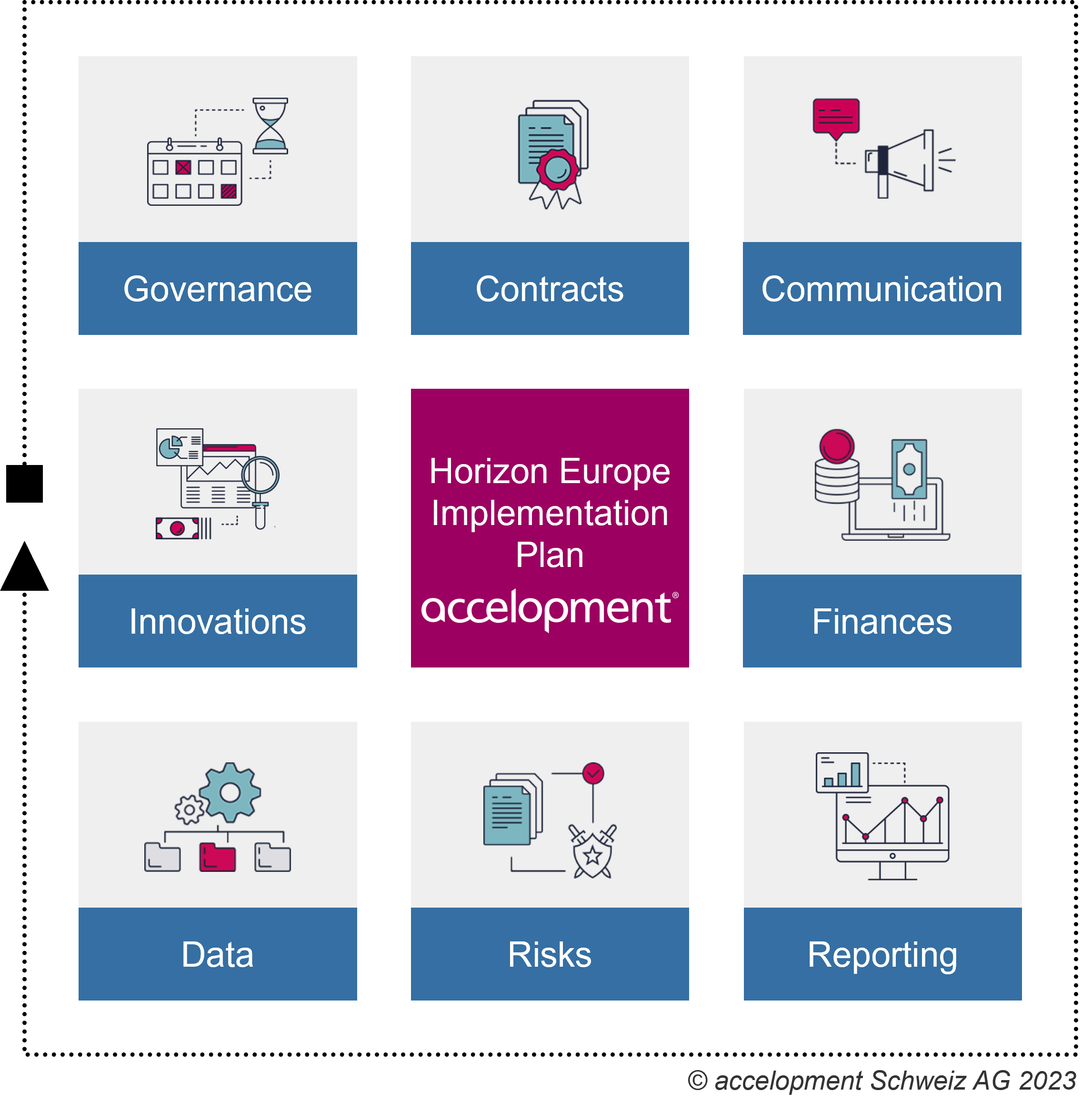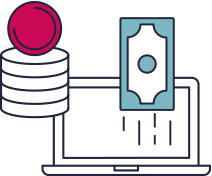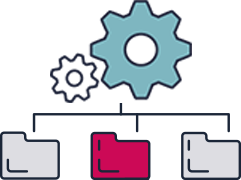The Implementation Plan: your guide through the complexities of Horizon Europe projects
10th May 2023 at 8:00 am
Managing a Horizon Europe (HORIZON) funded project can be demanding. For researchers and companies without previous experience or expertise in the European Commission (EC) rules and the programme-specific requirements, it can be a daunting task, especially for research and innovation actions (RIAs), innovation actions (IAs) and coordination and support actions (CSAs). With multiple partners from different countries, complex funding requirements, many contractual obligations to follow and strict deadlines to meet, all while conducting impactful top-notch research, it’s essential to have a clear plan of action from the outset.
In most HORIZON projects, the EC requires consortia to develop a project management plan, implementation plan or implementation guide (the title can vary, but the content remains similar) and submit it as a so-called deliverable within the first months of the project. Since FP7 and during Horizon 2020, the EU`s two predecessor framework programmes for research and innovation, we at accelopment set up a ‘Project Handbook’ for each of the projects in which we provided administrative management support. The handbook was a compilation of factsheets covering key topics, including the project`s governance, corporate identity and internal communication guidelines, as well as FAQs on the EC’s financial rules and reporting. With the now mandatory implementation plan, or different versions of it, the format, structure and partially also the contents have changed. Thus, we have now given our previous Project Handbook not just a new name but also a new look and, crucially, we have adapted its content to HORIZON projects, expanded it to include new sections, while still customising it for each project we support. Our Implementation Plan is a document that presents the guidelines and key administrative and management processes to be followed by the consortium throughout the project’s duration. Let’s dive into the details of this resource and explore why we believe it is an essential tool for any EU-funded project.
What are common aspects to consider when part of a HORIZON-funded project?
Like for most projects, there are some essential aspects for partners in EU-funded projects to keep in mind towards successfully and collaboratively reaching the project’s goals.


Clear communication: Clear communication is essential for the success of any research project. All partners must communicate regularly and effectively to ensure that everyone is on the same page. Not only is it crucial to communicate within the consortium, but it is also important to clearly communicate the project’s progress towards the funding bodies, that are interested in seeing their financing being put to good use, and to a variety of stakeholders that could benefit from, take up or collaborate with the research being done. For each communication activity, be it internal or external to the consortium, there will be a series of requirements to follow and activities to undertake.

Timelines and deadlines: Timelines and deadlines must be carefully managed to ensure that the project is completed on time and within budget. It is as simple as that. But in practice, with the work within the project being broken down into work packages, a multitude of tasks and subtasks with different roles and responsibilities being taken up by the partners in the project, staying on track and meeting deadlines is not always a simple task, especially given the experimental nature of certain types of research.

Budget management: Budget management is critical for the success of the project. All partners must keep track of their expenses and adhere to the budget allocated for their tasks. This means knowing what can be claimed from the grant and what not, making sure the whole team is aware of which documentation is to be kept, in some cases preparing for and undergoing audits, and at times adjusting the work plan to stay within budget.

Risk management: Risk management is essential for identifying potential issues and developing mitigation strategies. All partners must work together to identify and assess risks and develop plans to manage them early on. Having the right strategy in place to continuously keep the risks monitored and promptly respond in case they occur, will help the project progress more smoothly.

Data management: Data management is critical for the success of the project, and for any research that will further build upon it. All partners must follow the data management plan outlined for the project and know who to reach out to for guidance, to ensure that data is collected, stored, shared, and preserved appropriately.

Innovation management: Innovation management will be a must for any research project generating new results. Having clear steps in place for how to deal with the project’s outputs and identify the best use to be made of these is essential to avoid conflicts within the team but also to help ensure that the research conducted has a tangible impact and can be taken further, either commercially or by other means.
For each of these aspects, among others, there will be specific contractual obligations to understand and follow, based on which each consortium will put in place dedicated processes for all partners to implement and contribute to. Moreover, in the specific case of Horizon Europe, currently there are still countries like Switzerland and the UK that are not fully associated to the funding programme. This means that while partners from these countries can still participate in Horizon Europe projects, they do so as associated partners and their funding is granted by their respective national funding agencies, such as the State Secretariat for Education, Research and Innovation (SERI) in Switzerland and UK Research and Innovation (UKRI) in the UK. These different sources of funding also bring into the picture slightly different requirements and contractual obligations. A common example concerns the durations, templates and approaches put in place by the EC, SERI and UKRI for the reporting periods within which the partners they fund need to report on their finances and research activities in the project. The funding agencies also have different requirements in terms of the text to be used for disclaimers and funding acknowledgments on communication and dissemination material produced by the project. Playing by the rules and keeping everyone happy without the administrative tasks overburdening the research, requires a fine balance of thorough understanding of the contractual obligations and experience in putting these into practice to harmonise all requirements.
While participating in an EU-funded project where only the EC rules are to be followed is complex enough, projects that include also partners from non-associated countries have it even harder. The Implementation Plan that we developed aims to condense the complexity into simple, bite-sized guidelines in a language that is accessible for all partners and that goes straight to the point.
What is the Implementation Plan?
The Implementation Plan is a comprehensive document that outlines the key guidelines and processes that must be followed by the consortium throughout the duration of the project. It’s customised to each project we support and is designed to provide an accessible and go-to resource for the consortium. While it’s not intended as a substitute for the contractual agreements between partners and funding agencies, it aims to condense the key requirements into an easily accessible format.
The Implementation Plan is structured into dedicated sections presenting specific advice and describing the processes to be followed within the project, ranging from the overview of the project and its specific objectives, the timelines involved, its governance structure and contractual framework, all the way to the agreed approaches for management of intellectual property and the exploitation of project results. We have distilled this guidance from our long-standing experience in supporting the management, communication, dissemination and exploitation activities of EU-funded projects. As partners in almost 100 EU-funded projects, we have had the opportunity to gauge what the most common challenging aspects are for coordinators and partners. We have combined our expertise with the learnings from these projects to include in the Implementation Plan as answers to the most common questions encountered from the Grant Agreement preparation phase to the project’s completion.
How is the Implementation Plan used and how can you benefit from it?
The Implementation Plan is tailored to each project we support and is provided to the consortium at the start of the project. It is a resource that the consortium can refer to at any point throughout the project’s duration and provides definitions and explanations aimed at getting even the less-experienced partners familiar with the jargon and standards of EU-funded projects. It provides a clear roadmap for the consortium to follow and ensures that everyone is on the same page. By following the guidance in the Implementation Plan, the consortium can ensure that they meet the funding agencies’ requirements and deliver a successful project.
To complement your Implementation Plan, to facilitate the actual project implementation and help streamline its process, providing guidance and support not just to the project managers in the team, but to all partners in the consortium, we have also developed a project management tool, the accelCOCKPIT®, that supports the administrative and technical project managers with the planning, monitoring and evaluation of a project and its performance. If you have been following our blog for some time, you might have already read about our post titled Making EU project management efficient with accelCOCKPIT®, in which we provided an overview of the key management tasks in EU-funded projects, of the suitable management structures available for such projects, and what our accelCOCKPIT® entails.
The guidance in the Implementation Plan complements the accelCOCKPIT®, which instead provides real-time insights into project progress and enables the consortium to track their progress against key milestones. Using both these resources side-by-side, we can offer the consortia comprehensive guidance and administrative support to smoothly navigate their EU-funded projects.
If you are interested in learning more about the Implementation Plan, accelCOCKPIT® and our project management support, feel free to reach out to one of our EU Project Managers.


